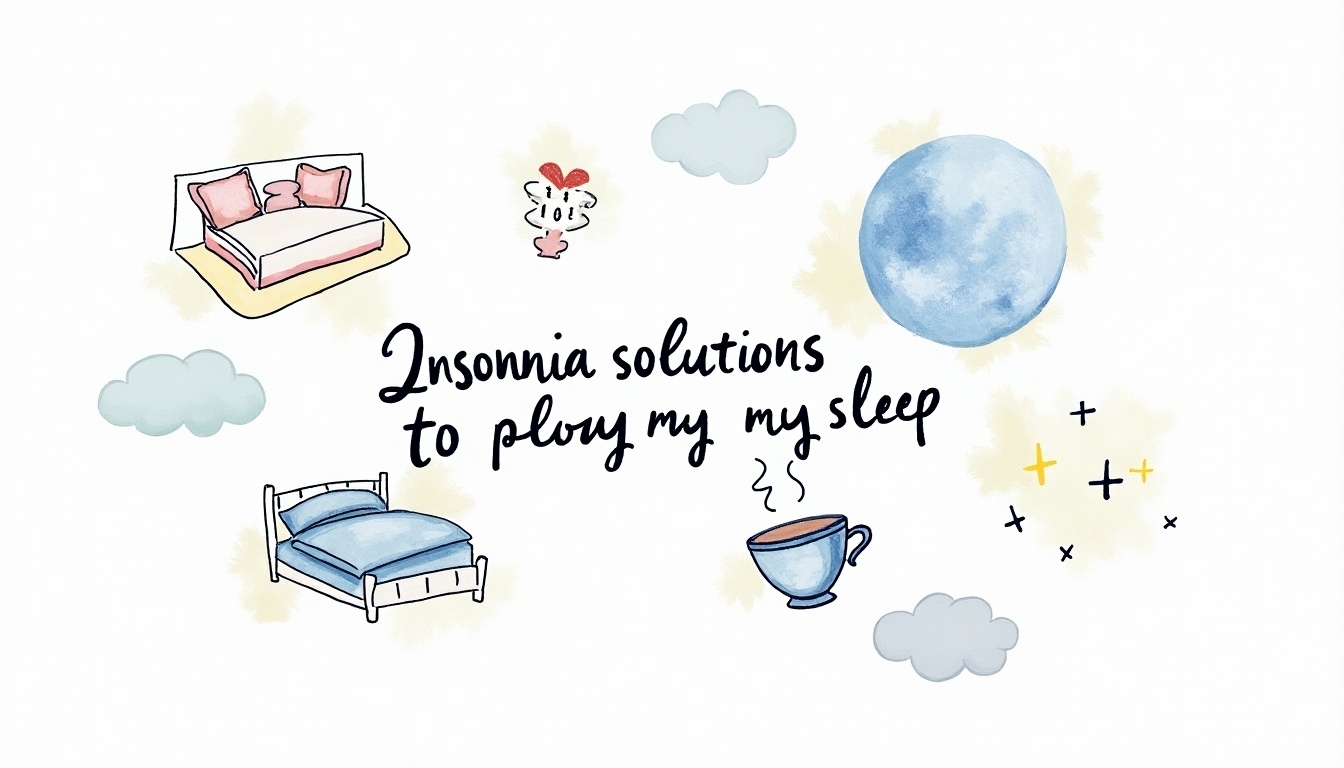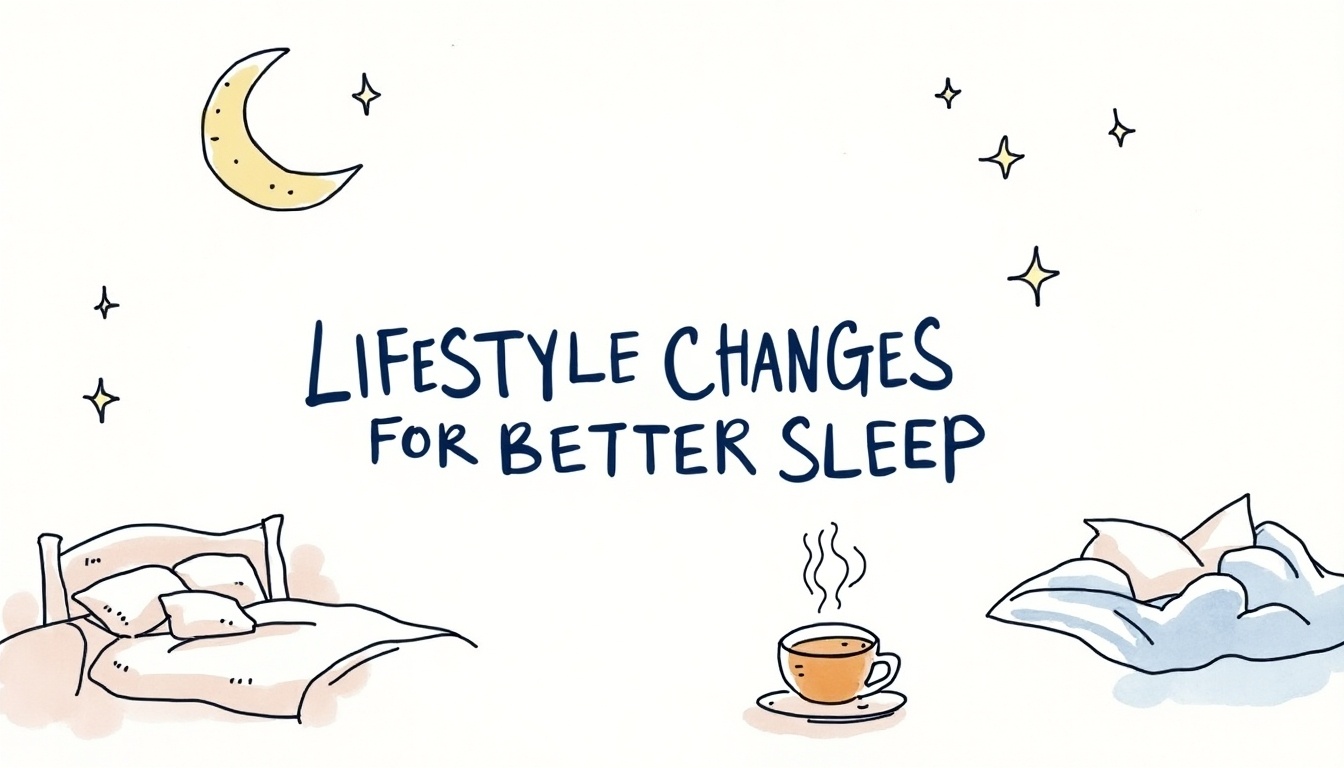The Use of Melatonin for Managing Sleep Disorders
Melatonin, a hormone made by the pineal gland, plays a key role in regulating sleep-wake cycles. It increases when it gets dark, helping people feel sleepy, and decreases with morning light. Often available as synthesized oral supplements, melatonin is used for various sleep disorders. It’s particularly helpful for circadian rhythm disturbances, such as in blind individuals or those with delayed sleep phase disorder. While it may aid insomnia and jet lag relief—though mixed results are seen—it’s not a standalone treatment option. Side effects can include dizziness or daytime drowsiness; hence consulting a healthcare provider before use is advised, especially for children.
Overview of Melatonin
Melatonin is a hormone that plays a crucial role in regulating our sleep-wake cycles. It is produced by the pineal gland, a small gland located in the brain, and its production is closely linked to the light-dark cycle. Levels of melatonin typically rise in the evening as darkness falls, signaling the body that it’s time to prepare for sleep. Conversely, melatonin levels drop in the morning when light exposure occurs, promoting wakefulness. In addition to the naturally occurring hormone, melatonin is also available in synthetic forms, typically as oral tablets or capsules, making it accessible for those seeking assistance with sleep-related issues.
The use of melatonin supplements has gained popularity among individuals with sleep disorders, particularly those involving disruptions to the body’s natural circadian rhythms. For instance, people who are blind often struggle with sleep regulation due to the absence of light cues; melatonin can help them establish a more consistent sleep pattern. Additionally, melatonin is frequently recommended for managing delayed sleep phase disorder, which affects many individuals, including both adults and children, by helping them fall asleep more easily at desired times. It may also be beneficial for those dealing with jet lag, as research has shown that melatonin can alleviate symptoms like daytime sleepiness and enhance alertness after long-distance travel.
Indications for Use
Melatonin is indicated for several sleep disorders, with varying degrees of effectiveness. In individuals with circadian rhythm sleep disorders, such as those who are blind, melatonin can help regulate sleep cycles effectively. For those with delayed sleep phase disorder, melatonin has been shown to reduce the time it takes to fall asleep and can assist in aligning sleep patterns for both adults and children. In cases of insomnia, while melatonin might slightly decrease sleep onset time, its effects on overall sleep quality and duration are not well-established; it tends to be more beneficial for older adults who may have lower natural melatonin levels.
Melatonin is also used to mitigate the symptoms of jet lag, with evidence indicating it can help reduce daytime sleepiness and improve alertness after traveling across time zones. For night shift workers experiencing shift work disorder, the evidence regarding melatonin’s effectiveness is mixed, and it may not always improve daytime sleep quality. Additionally, children with specific sleep disorders, particularly those with ADHD or autism, may experience potential benefits, but it’s important that melatonin use in children is supervised by a healthcare provider.
| Indication | Description |
|---|---|
| Circadian Rhythm Sleep Disorders | Effective for individuals who are blind, helping to regulate sleep cycles. |
| Delayed Sleep Phase Disorder | Reduces sleep onset time and helps align sleep patterns in adults and children. |
| Insomnia | May slightly decrease time to fall asleep, with unclear effects on sleep quality and total sleep duration. |
| Jet Lag | Evidence supports effectiveness in alleviating symptoms like daytime sleepiness. |
| Shift Work Disorder | Mixed evidence regarding effectiveness in improving daytime sleep quality. |
| Children with Sleep Disorders | Potential benefits, but should be used under medical supervision. |
Effectiveness of Melatonin

Melatonin has shown effectiveness in reducing the time it takes to fall asleep, particularly for individuals with delayed sleep phase syndrome. Research indicates that it can help regulate sleep patterns in people whose natural sleep-wake cycles are disrupted, such as those who are blind or shift workers. In clinical trials, melatonin generally helps decrease sleep onset latency, which is the time it takes to transition from full wakefulness to sleep. However, its impact on overall sleep quality and duration is less clear and varies among different studies.
For example, meta-analyses have found that while melatonin can shorten sleep onset time, it has minimal effects on sleep quality and efficiency. This suggests that, while it may assist in getting to sleep faster, it might not improve how restful or restorative that sleep is. Younger populations and those with circadian rhythm disruptions tend to benefit the most from melatonin supplementation.
In cases of insomnia, its effectiveness is more limited. Although some studies show it can slightly reduce the time taken to fall asleep, it is typically not recommended as a standalone treatment. Instead, it may work best when used alongside other therapeutic approaches, especially for older adults who may have diminished natural melatonin levels.
Side Effects and Safety
Melatonin is generally considered safe for short-term use, but like any supplement, it can come with side effects. Common side effects include nausea, dizziness, headaches, and daytime drowsiness. Some individuals may also experience vivid dreams or alterations in their mood, such as feelings of anxiety or depression. While these effects are typically mild and do not occur in everyone, they highlight the need for caution, especially for first-time users.
The safety profile of melatonin is reassuring for most people when taken for a limited duration, typically days to weeks. Studies suggest that it does not present significant risks when compared to a placebo. However, the long-term safety of melatonin supplements remains uncertain, particularly if used consistently over extended periods. This uncertainty is particularly relevant for vulnerable populations, such as children and individuals with underlying health conditions.
For people considering melatonin, it is crucial to consult with a healthcare provider, especially if they are taking other medications or have health concerns. This is because melatonin can interact with various drugs, potentially altering their effects. For example, combining melatonin with central nervous system depressants can enhance sedation, leading to excessive drowsiness. Therefore, being informed and cautious about its use is essential for ensuring safety.
Dosage Recommendations
Typical melatonin dosages range from 1 to 5 milligrams, taken about 30 minutes before bedtime. Some studies suggest that lower doses, like 0.5 mg, may also be effective without increasing the risk of side effects. It’s important to note that higher doses do not necessarily provide more benefits and can lead to increased side effects such as daytime drowsiness or vivid dreams. Therefore, starting with the lowest effective dose is generally advisable. Always consult a healthcare provider before beginning melatonin, especially for children or individuals with pre-existing health conditions, to determine the most appropriate dosage and ensure safety.
- Start with a low dose (0.5 to 1 mg) for first-time users.
- Gradually increase the dose based on individual response.
- Typical effective doses range from 1 to 5 mg.
- Take melatonin 30 to 60 minutes before bedtime.
- Consult with a healthcare provider before use, especially for long-term use.
- Consider age and overall health when determining dosage.
- Keep track of any changes in sleep patterns or side effects.
Drug Interactions
Melatonin can interact with various medications, which is important for users to consider. For instance, when taken alongside CNS depressants like benzodiazepines or alcohol, melatonin may enhance sedative effects, leading to increased drowsiness or impaired coordination. Additionally, individuals on blood pressure medications should be cautious, as melatonin can affect blood pressure control, potentially causing fluctuations. Those taking anticoagulants, such as warfarin, may face an increased risk of bleeding when combined with melatonin. Furthermore, caution is advised for people using immunosuppressants or anticonvulsants, as melatonin might interfere with their effectiveness. It is also important to note that melatonin is metabolized by liver enzymes, so medications that affect these enzymes could alter melatonin levels in the body. Therefore, consulting a healthcare provider before starting melatonin, especially if on other medications, is crucial.
Future Research Needs
Future research on melatonin should focus on several key areas to enhance our understanding of its role in managing sleep disorders. First, long-term studies are essential to assess the safety and efficacy of melatonin over extended periods. While it is considered safe for short-term use, its effects and potential risks with chronic consumption remain largely unknown. Additionally, research should explore the variability in response to melatonin among different populations, such as children, older adults, and individuals with various health conditions. Understanding how factors like age, gender, and existing medical issues influence melatonin’s effectiveness can lead to more personalized treatment approaches.
Moreover, it would be beneficial to investigate the optimal dosage and timing for different sleep disorders. Current guidelines suggest a range of 1 to 5 milligrams, but there is a need to determine if lower doses could be just as effective while minimizing side effects. Trials comparing melatonin with other sleep aids could also provide insights into its role as an adjunct therapy rather than a standalone treatment.
Lastly, understanding the underlying mechanisms of melatonin’s action in the brain could open avenues for new therapeutic targets. Research into how melatonin interacts with neurotransmitters and its impact on sleep architecture will be crucial in refining its use in sleep medicine.
Frequently Asked Questions
1. What is melatonin and how does it work for sleep problems?
Melatonin is a hormone that helps control your sleep-wake cycle. When it’s dark, your body makes more melatonin, making you feel sleepy. Taking melatonin as a supplement can help people who have trouble falling or staying asleep.
2. Is melatonin safe to use for sleep disorders?
For most people, melatonin is safe for short-term use. However, long-term effects aren’t well-studied, so it’s best to talk to a doctor before using it regularly.
3. How should I take melatonin to help with my sleep issues?
It’s usually best to take melatonin 30 to 60 minutes before bedtime. Start with a small dose, like 1-3 mg, and see how your body reacts. Adjust as needed under the guidance of a healthcare provider.
4. Can melatonin help with jet lag and shift work sleep disorder?
Yes, melatonin can be helpful for adjusting your body’s clock, especially when traveling across time zones or adapting to night shifts. Taking it before your new bedtime can help your body adjust more quickly.
5. Are there any side effects of using melatonin for sleep?
Some people might experience side effects like dizziness, daytime sleepiness, or headaches. If you notice any unusual symptoms, it’s best to stop taking it and consult a healthcare professional.
Takeaway (TL;DR)
Melatonin, a hormone that regulates sleep-wake cycles, is used to manage various sleep disorders such as circadian rhythm disorders, insomnia, jet lag, and shift work disorder. It shows effectiveness primarily in reducing sleep onset time, especially in delayed sleep phase syndrome, though its impact on overall sleep quality is limited. Common side effects include nausea and daytime drowsiness, and it is generally safe for short-term use. Dosages typically range from 1 to 5 mg, taken before bedtime, and users should consult a healthcare provider before starting. While promising, further research is needed to understand its long-term safety and effectiveness.
 English
English  Spanish
Spanish  Portuguese
Portuguese 






